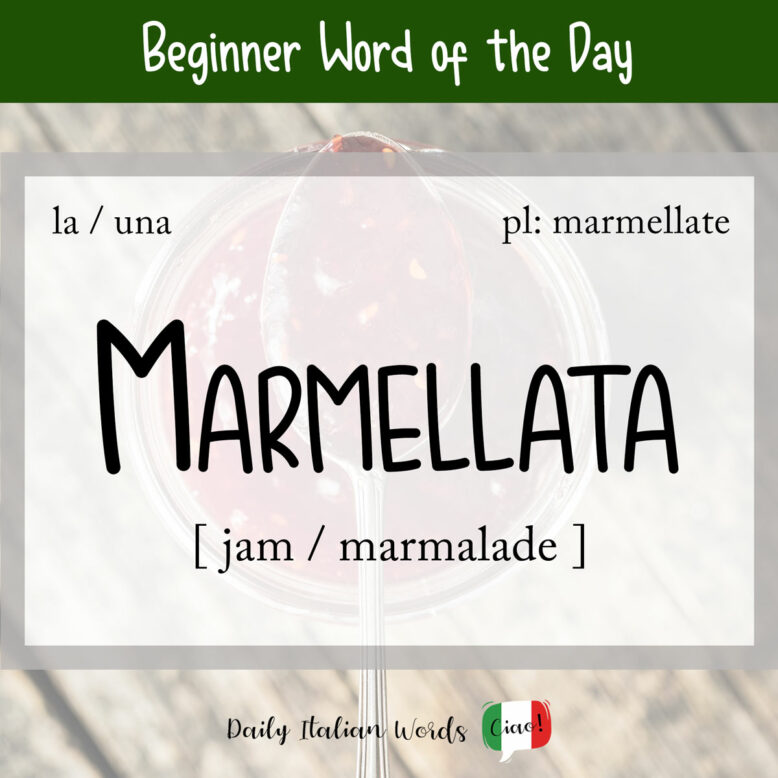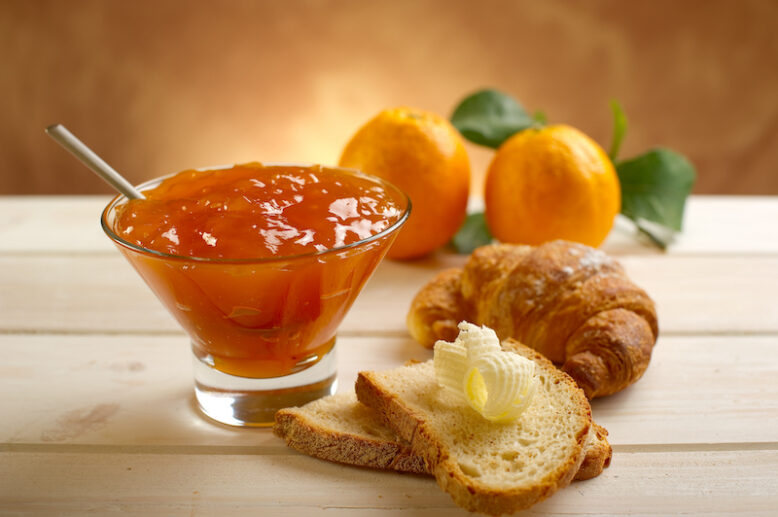What is the first translation that comes to mind when you see the Italian word marmellata? If you said marmalade, you wouldn’t be wrong, but there is more to this sweet and sticky tale than meets the eye …
marmellata
jam / preserve

According to the precise EU definition, marmellata must be crafted from specific citrus fruits such as orange, mandarin, lemon, citron, bergamot, and grapefruit, with a minimum fruit content of 20%. In other words, what we call marmalade in English!
Jams made from fruits outside this citrus category should technically be termed confettura, which necessitates a minimum fruit content of 35%.
However, the reality is that in everyday Italian, the terms marmellata and confettura are often used interchangeably. In fact, it is very common for Italians to use marmellata to refer more broadly to any kind of jam or preserve made from boiled fruit and sugar.

According to Treccani, marmellata comes from the Portuguese marmelada, derived from the Latin melimelum, and the Greek μελίμηλον, meaning “quince grafted onto an apple tree.”
Here are some common types of marmellata that you’ve probably spread on a piece of toast at some point in your life!
- marmellata di fragole = strawberry jam
- marmellata di lamponi = raspberry jam
- marmellata di arance = marmalade
- marmellata di mirtilli = blueberry jam
- marmellata di pesche = peace jam
- marmellata di ciliegie = cherry jam
- marmellata di albicocche = apricot jam
- marmellata di fichi = fig jam

Sto spalmando la marmellata su una fetta di pane tostato.
I’m spreading the jam on a piece of toast.
Yet another similar product is composta, which is known as compote or fruit preserve in English. It must have a fruit content of at least 65% and contains less sugar than either marmellata or confettura. (Source: Shop Piemonte)
Heather Broster is a graduate with honours in linguistics from the University of Western Ontario. She is an aspiring polyglot, proficient in English and Italian, as well as Japanese, Welsh, and French to varying degrees of fluency. Originally from Toronto, Heather has resided in various countries, notably Italy for a period of six years. Her primary focus lies in the fields of language acquisition, education, and bilingual instruction.


